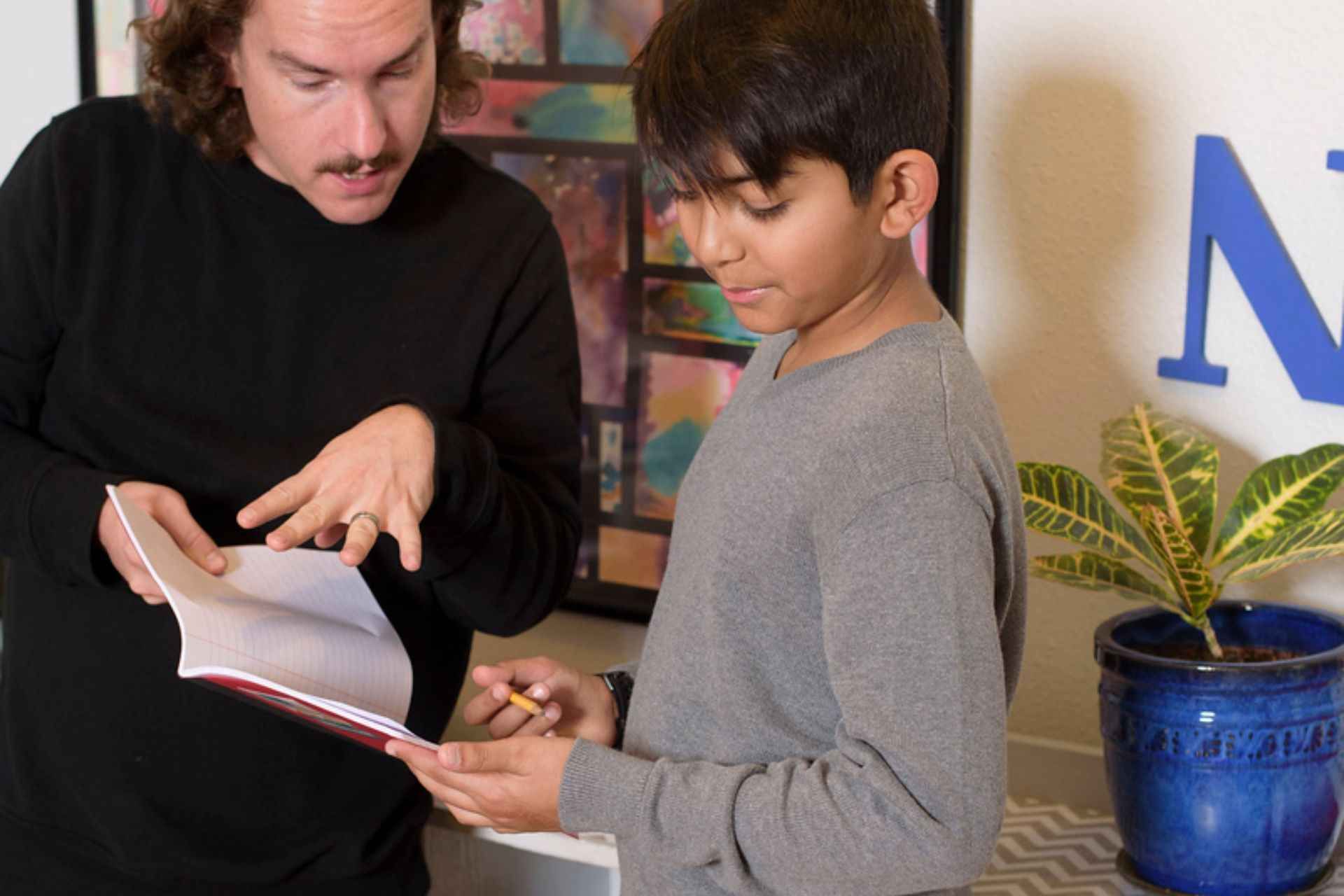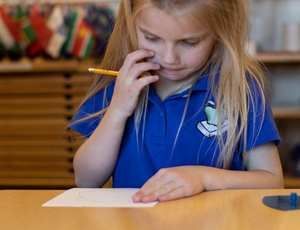Weighing School Choices
By Marcia Kidd

Each year at this time, parents are faced with important decisions regarding their children’s education. In choosing a school and academic program that best meets our children’s needs, there are many considerations to weigh – logistics, family budget, school culture, the school’s relationship with its families, opportunities for parent involvement, and most importantly, support of the individual child’s academic, social and emotional development.
From toddlerhood through early childhood, adolescence, and secondary education, children pass through distinct planes of development. It is not unusual, therefore, that parents may find themselves re-evaluating and making decisions at each new stage. In her observations of children the world over, Montessori recognized distinct phases of development and created her educational method to support those phases:
Education should not limit itself to seeking new methods for a mostly arid transmission of knowledge: its aim must be to give the necessary aid to human development…If “the formation of man” becomes the basis of education, then the coordination of all schools from infancy to maturity, from nursery to university, arises as a first necessity: for man is a unity, an individuality that passes through interdependent phases of development. Each preceding phase prepares the one that follows, forms its base, nurtures the energies that urge towards the succeeding period of life.
(Montessori. From Childhood to Adolescence, p. 84).
Contrary to what many of us believe, Montessori viewed the ages of birth through six years of age to be the most important years of education:
There are many who hold, as I do, that the most important period of life is not the age of university studies, but the first one, the period of birth to the age of six. For that is the time when man’s intelligence itself, his greatest implement, is being formed. But not only his intelligence; the full totality of his psychic powers”
(Montessori, The Absorbent Mind, p.21).
Montessori created her method of education to meet the observed needs of the child at each level of his development. She believed that “one test of the correctness of educational procedure is the happiness of the child.” Phrased another way, Montessorian Sanford Jones states, “…Montessori theory and practice, when rightly understood and applied, cooperates with the nature of the child – it does not work against it.”
It follows that an educational method that supports the nature of the child would yield happy and engaged learners!
The following articles also provide excellent insight as you evaluate both the short and long-term benefits of Montessori education.
- “Montessori or Traditional Kindergarten A Parent’s Guide for the Five Year-Old” , by Aline D. Wolf
- “Why Montessori for the Kindergarten Year?” , by Tim Seldin and Dr. Betsy Coe
- “Why Montessori for the Elementary Years”, by Sanford Jones
- “Montessori Adolescent Programs: The Erdkinder” , NAMC website
Resources:
Montessori, Maria. From Childhood to Adolescence. Clio Press, 1995, Oxford.
Montessori, Maria. The Absorbent Mind. Clio Press, 1994, Oxford.






